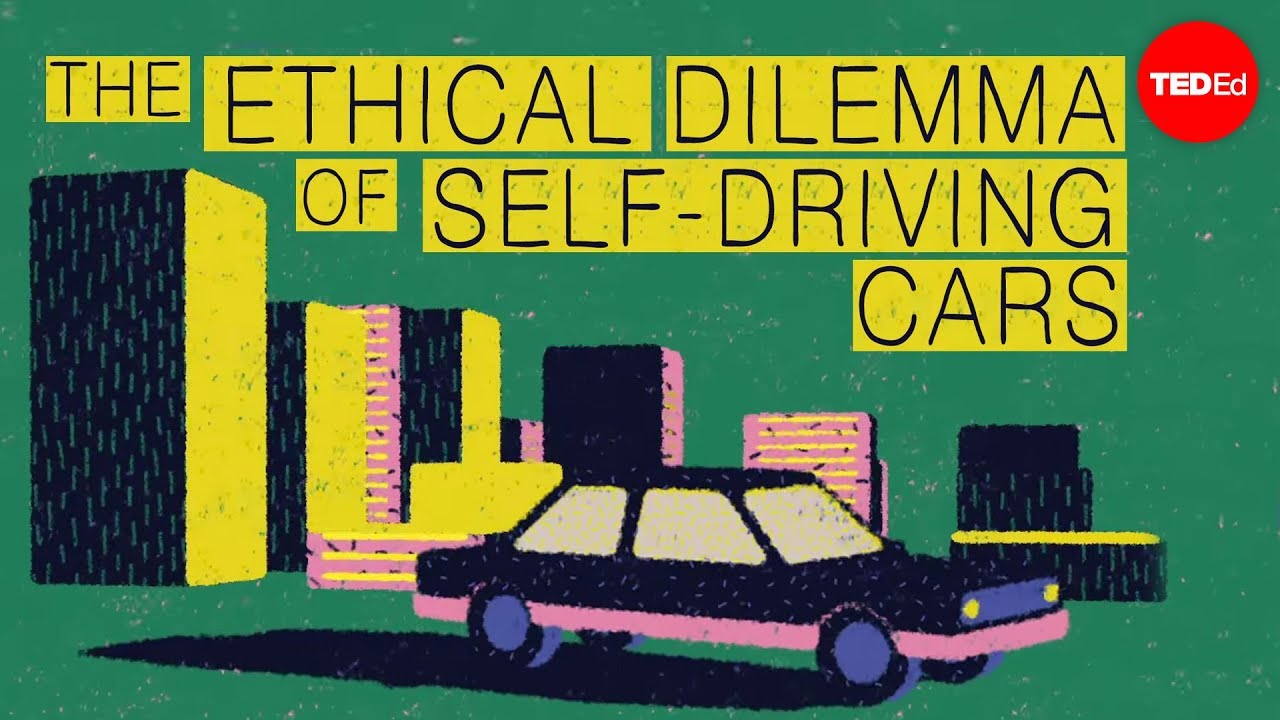

You are the owner of a self-driving car that encounters a situation where it must make a difficult ethical decision. The car can either swerve to avoid hitting a group of pedestrians, potentially causing harm to the passenger inside, or stay on course, hitting the pedestrians. What should the self-driving car do, and how would you justify your decision?
As the owner of a self-driving car, I would prioritize the safety of human life over any other consideration. Therefore, in a situation where the car must make a difficult ethical decision between swerving to avoid hitting a group of pedestrians and potentially causing harm to the passenger inside, or staying on course and hitting the pedestrians, the self-driving car should swerve to avoid hitting the pedestrians.
Justifying this decision requires considering several factors: minimizing harm, adhering to legal and ethical principles, and implementing the principles of utilitarianism.
1. Minimizing Harm: The primary objective of any autonomous vehicle should be to minimize harm. Swerving to avoid hitting pedestrians, even at the risk of causing harm to the passenger, aligns with this objective. The potential harm to the passengers is limited to the occupants of the vehicle, while not swerving could result in significant harm to multiple pedestrians.
2. Legal and Ethical Principles: Legal frameworks and ethical guidelines generally prioritize minimizing harm to human life. For instance, the "Duty of Care" principle in many jurisdictions requires drivers to take reasonable actions to avoid accidents and minimize harm to others. Self-driving cars should adhere to these principles, and swerving to avoid pedestrians is consistent with them.
3. Utilitarianism: Utilitarianism is an ethical theory that advocates for actions that maximize overall happiness or well-being. In the context of self-driving cars, this means minimizing harm and maximizing the number of lives saved. By swerving to avoid pedestrians, the car aims to save multiple lives, which aligns with the utilitarian principle.
It is important to note that the decision-making process of self-driving cars is not entirely straightforward and requires continuous improvement. The development of ethical frameworks, public input, and regulatory oversight are necessary to ensure that self-driving cars make decisions that align with societal values and expectations.
Furthermore, it is essential to consider that self-driving cars are equipped with advanced sensors and algorithms that can potentially detect and respond to situations more effectively than human drivers. They can assess the surroundings, calculate potential outcomes, and make decisions in a split second, potentially avoiding accidents altogether.
In conclusion, when faced with a difficult ethical decision, a self-driving car should prioritize the safety of pedestrians over the well-being of the passenger inside. This decision is justified by the principles of minimizing harm, adhering to legal and ethical principles, and implementing the utilitarian principle of maximizing overall well-being.
Related Posts
© 2025 Invastor. All Rights Reserved

User Comments
Nash Dawson
a year ago
Absolutely. The self-driving car dilemma shows that progress often comes with complex moral considerations that we'll have to grapple with as a society.
Harper Lincoln
a year ago
It definitely makes you think about the implications of autonomous technology beyond just the convenience it offers.
Henry Lennon
a year ago
And as these self-driving cars become more common, it's crucial to have these discussions on a societal level. There's no one-size-fits-all answer.
Nash Dawson
a year ago
I think that's a decision everyone would have to make for themselves. But it highlights the larger ethical questions we face as technology becomes more advanced.
Harper Lincoln
a year ago
It's also interesting how these dilemmas can reveal our own values and priorities. Would you buy a self-driving car programmed to protect others over you?
Henry Lennon
a year ago
I guess it comes down to the fact that programming ethics into machines is complicated. Humans can't even agree on a single ethical principle for these situations.
Nash Dawson
a year ago
And what about legal responsibility? If the car swerves and the passenger gets hurt, can the car manufacturer be held liable? Or would they be blamed if it didn't swerve and pedestrians got injured?
Harper Lincoln
a year ago
But then again, what if the passengers know that the car is programmed to save pedestrians over them? Would anyone really want to use a self-driving car knowing they might be sacrificed in certain situations?
Henry Lennon
a year ago
Well, it might come down to the programming and how the car's algorithm is designed. Should it follow a strict "minimize harm" principle, or should it prioritize protecting its passenger at all costs?
Nash Dawson
a year ago
Exactly, it's like trying to quantify the value of human lives. If it swerves and crashes, it's potentially putting the passenger in danger, but if it doesn't, innocent pedestrians might get hurt.